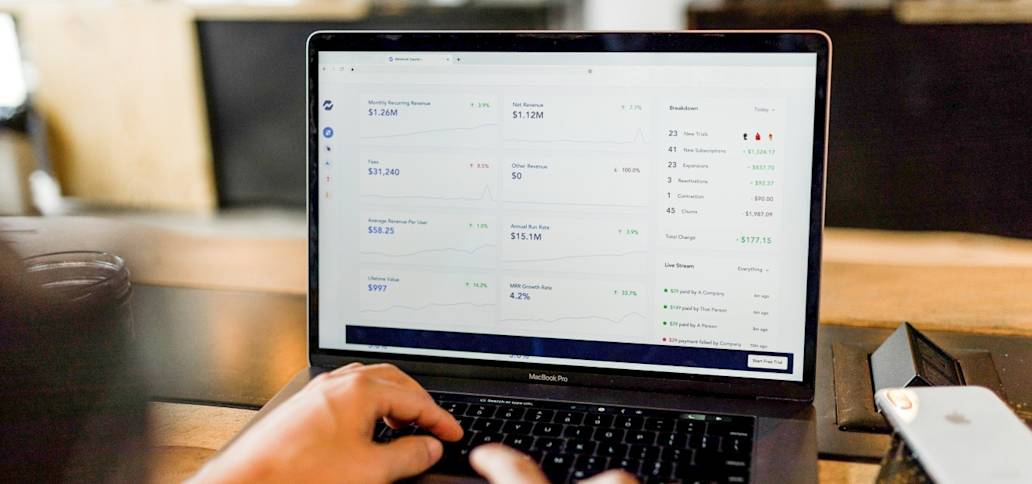What are liquid assets and why are they important?

In a post-pandemic world, liquidity can make or break a business. Even for global companies that hold enormous wealth in assets or generate billions of dollars in revenue, an inability to generate liquid cash can still lead to their demise.
In tough times, liquidity is critical to survival or for capitalising on opportunities that may only appear for a very brief period. Securing credit, weathering periods of slow sales or restrictions or buying out a struggling competitor are all examples where accessing cash quickly can be a make-or-break moment for businesses.
In this article, we'll look at the difference between liquid vs non-liquid assets, and what this means for your UK business. But first, let’s start at the beginning by defining what liquidity actually means.
What is liquidity?
‘Liquidity’ sounds like an obtuse term, but it’s actually quite descriptive.
Liquidity is your business's ability to convert your assets into cash, or how fluid your ability is to access the money that your business holds. Essentially, can you turn this flow of cash on and off like a tap? That’s liquidity.
As a business, your money is typically held in your assets. So, to determine your business’ liquidity there are two types of assets to look at: liquid vs non-liquid assets.
What are liquid assets?
A liquid asset is any type of asset your business holds that can quickly be converted to cash while still keeping its market value.
There are certain factors that can make assets more or less liquid. These include:
How long it takes for the asset to be sold
How established the market is for that asset
How easy it is for the ownership of the asset to be transferred
Within liquid assets, there are two main types of assets your business will typically hold.
Cash assets
Cash assets are any types of asset that involve actual currency.
Cold, hard cash itself is one of the most liquid cash asset types available. This is because cash is available on-demand, it holds its market value well, and it can be transferred easily.
Funds that can be withdrawn from your bank account are one of the next most liquid types of assets. These types of funds require no conversion. They’re quick, easy, and available to access practically immediately, at the press of a button.
Your business’ accounts receivables are another good liquid asset. The money is yours, it’s designated to be transferred to you by your customers or suppliers—it’s just a matter of them paying on time.
Non-cash liquid assets
Non-cash assets are those that aren’t as easily turned into cash. Investments are a great example of this. They’re considered cash equivalents, as they can be liquidated quickly if you need to access this money.
Stocks are another good example of non-cash liquid assets. How easy they are to convert into cash depends on the nature of each stock, but on the whole, they’re usually available to access within a couple of days. The only issue is that if the market is down, you’ll sell your stock at a lower cost, meaning they don’t provide as good value for you.
Long-term investments are less liquid. For example, dipping into your 401(k) wouldn’t be advisable (for many reasons, really), as anyone under 59 years of age faces steep early withdrawal penalties when trying to cash out.
What are non-liquid assets?
A non-liquid asset, or illiquid asset, is anything that can’t be quickly and easily converted into cash. These assets don’t just flow at the turn of a tap.
Non-liquid assets are long-term investments. They have the purpose of helping your business build long-term wealth, rather than accessing quick money.
Non-liquid assets include things like:
Real estate
Vehicles and business equipment
Art, jewellery, and collectibles
Ownership in non-publicly-traded businesses
When you need to access your non-liquid assets, this requires them to be sold, or have their ownership transferred, in order for you to access their value.
This isn’t always an easy process. It can take anywhere from months to years to find the right buyer. Then, subsequent contract negotiations can draw out, going back and forth to reach an acceptable value. Once this is agreed upon, there’s still settlement and transfer time.
What are the benefits of liquid vs non-liquid assets?
The benefit of liquid assets is that they’re easy to access, and readily available should your business need them. Also, they hold their value well. They’re not subject to volatile peaks and troughs like long-term assets, you’re able to access mostly the same value as what you expect.
So if you need money within a short timeframe, liquid assets are where you should be looking to access these funds.

Why liquid assets are important
Liquid assets exist to provide you with money when your business needs it. This includes being able to cover things like your regular supplier invoices, employee wages, insurance payments, and ongoing bills.
But liquid assets are also invaluable in providing a safety buffer. If you need cash fast, whether it’s to make an important purchase or pay an unexpected bill, having a reserve of assets available as your emergency parachute can literally save your business.
So the higher volume of liquid assets your business holds, the better prepared you are for operating with flexibility.
Non-liquid assets certainly do have their place and are necessary to help your business build long-term wealth. But liquid assets are critical in running an agile business.
Having a higher volume of liquid assets is also beneficial when applying for loans. This demonstrates more cash available, so you’re a safer loan candidate, and you may even find yourself able to access more competitive interest rates and better loan terms. This is crucial for startups and new businesses.
Access cash fast with Airwallex
In the current climate, liquid assets are critical in helping businesses survive through our unprecedented financial situation. But the key is balancing available cash reserves with strong financial security.
Airwallex is designed to help businesses like yours access, send, receive, and transfer cash as quickly and effectively as possible, all around the globe. With same-day transfers and real-time payouts, you’re able to release money instantly, either to your business or suppliers, when you need it.
Airwallex Business Account also makes it easier to manage your accounting and payroll, reducing your margin for error, so you always pay your bills on time. Integrating seamlessly into your existing financial system, Airwallex allows you to ensure your employee wages and supplier payments always go through on time, and you’re never charged any interest or late fees.
We enable you to minimize your transaction costs and keep more money in your account, so you can remain as liquid as possible—even in these turbulent times.

Share
Related Posts

How to open a business bank account in the UK
•5 minutes

Compare UK business bank accounts
•5 minutes
Open a business account built for growth
Reach new markets with foreign currency accounts
Transfer funds across the globe, without excessive fees
Empower your team to make purchasing decisions
Cookies on the Airwallex website
We use cookies to give you a better experience on our website. If you continue without changing your settings, we’ll assume that you are happy to receive cookies. However, if you would like to, you can change your cookie settings at any time here